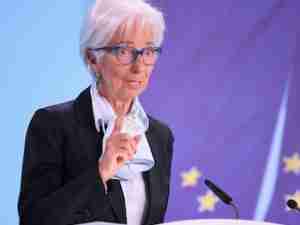Alternative trading arrangements with the European Union in the event of a British departure from the bloc would pose “serious risks” to the prosperity of Britain, Prime Minister David Cameron’s government said.
The option providing for the most definitive break with the 28-nation bloc—a reversion to World Trade Organization rules—would mean greater costs for businesses and trigger an economic shock, according to a report released in London on Wednesday. The U.K. government analyzed the relationships between the EU and countries outside the bloc to see if they would work, “and our conclusion is that they wouldn’t,” Foreign Secretary Philip Hammond told BBC Radio 4’s “Today” program.
“It is not credible to suggest that you could have continued access to the single market without having to accept freedom of movement of labor, without having to accept EU regulations, without having to contribute to the EU budget,” Hammond said. “If you accept all of those things, surely we are better off inside the European Union with our seat at the table, helping to negotiate all those things.”
The government is campaigning for Britain to stay in the EU in a June 23 referendum, arguing that the country is “stronger, safer and better off” using the collective heft of the 28-nation bloc. On Monday, it warned of a decade of uncertainty in the event of a vote to leave, or “Brexit,” leading to accusations of “scaremongering” from the “Leave” campaign.
‘Like Halloween’
“There has been far too much scaremongering; it’s like Halloween come early,” junior Justice Minister Dominic Raab, a proponent of Brexit, told the BBC. “There’s more risk staying in the EU, which is crippled by the euro-zone crisis, facing all the challenges on its borders and very weak in facing up to the likes of Russia.”
Former Conservative Chancellor of the Exchequer Norman Lamont threw his weight behind the “Leave” campaign Tuesday, arguing in an article in the Daily Telegraph newspaper that Britain must take control of immigration by seizing the “once in a generation opportunity” to exit the bloc. Lamont, who served in the John Major administration in the 1990s, adds his voice to that of former party leader Michael Howard in opposing Prime Minister David Cameron, who worked for both men in the past.
Leaders of big companies largely support continued EU membership, though the country’s main business lobby, the CBI, has repeatedly said that some support a Brexit.
Reasons to Stay
“I’d much prefer a messy divorce than a disastrous marriage,” the billionaire Phones4U founder John Caudwell said Wednesday in a Bloomberg television interview. “What are the reasons to stay in Europe—objective reasons, ones that are provable, indefinite and guaranteed? I can’t think of a single one.”
The government sought to dispel the notion that all is rosy outside the EU with its report, which analyzed the relationships with the bloc of countries that are outside. It found that:
- Switzerland pays into the EU budget, accepts the free movement of people and has limited access to the single market for its service companies. Services account for 80 percent of the U.K. economy.
- Norway contributes to EU expenditure, accepts free movement of people and has a higher proportion of EU residents than Britain. It implements 75 percent of EU laws and pays tariffs to export fish and agricultural products to the bloc.
- Canada’s trade agreement gives only partial access to the single market, is seven years in the making and has still not been implemented. Companies that export to the EU have to comply with the bloc’s regulations, there are quotas for agricultural exports and tariffs for products with too many foreign components.
- The fall-back option of WTO rules would bring in tariffs including 5 percent on chemicals, 10 percent on cars and 20 percent on whisky. That would make U.K. goods more expensive on the continent, and European goods more expensive domestically.
“Yes, we would be able to negotiate a free trade agreement with the European Union,” Hammond said. “But that agreement would come with a price tag.”




